The gutter system is an essential component of any building's roof. It may protect your roof, soffit, and even your landscaping from heavy water damage in the case of heavy rain, and it will cost you a lot to restore it. So, you must decide which type of gutter is best for your home. Fortunately, we are here to assist and share what we have learned.
There is no simple method to determine which of these gutters is the best option for your home. The conclusion of "which is better" depends on several factors, such as the weather in your area.
- Aluminum Gutters - You may use this sort of gutter if you live in a milder environment but still experience a lot of snow and rain.
- Vinyl Gutters - Choose the easy-to-install vinyl if you live in a warmer environment. These gutters are not affected by salty air, making them ideal for seaside homes since they will not rust or corrode.
- Steel Gutters - If you live in a harsh area where dents are probable, steel gutters are an excellent choice because they can endure any weather conditions.
- PVC Gutters - This sort of gutter is appropriate for warmer regions because it is prone to cracking or breaking apart when exposed to high temperatures or weather.
Rain gutters are essential for the protection and features of your home. Keep reading as we cover the many types and materials of gutters to help you learn more about your gutter systems and choose the best one for your property. We will also include the importance of gutter systems and how to maintain them.
![A comparison between aluminum, vinyl, steel and PVC gutters, Aluminum Vs. Vinyl Vs. Steel Vs. PVC Gutters [Which Is Right For Your Home?]](https://hvacseer.com/wp-content/uploads/2022/10/Aluminum-Vs.-Vinyl-Vs.-Steel-Vs.-PVC-Gutters-Which-Is-Right-For-Your-Home.jpg)
What Is The Importance Of A Gutter System?
Your gutters are in full control of water management. During a storm or heavy rain, they effortlessly channel water flow from your roof through the downspouts and route it to specific areas outside the property.
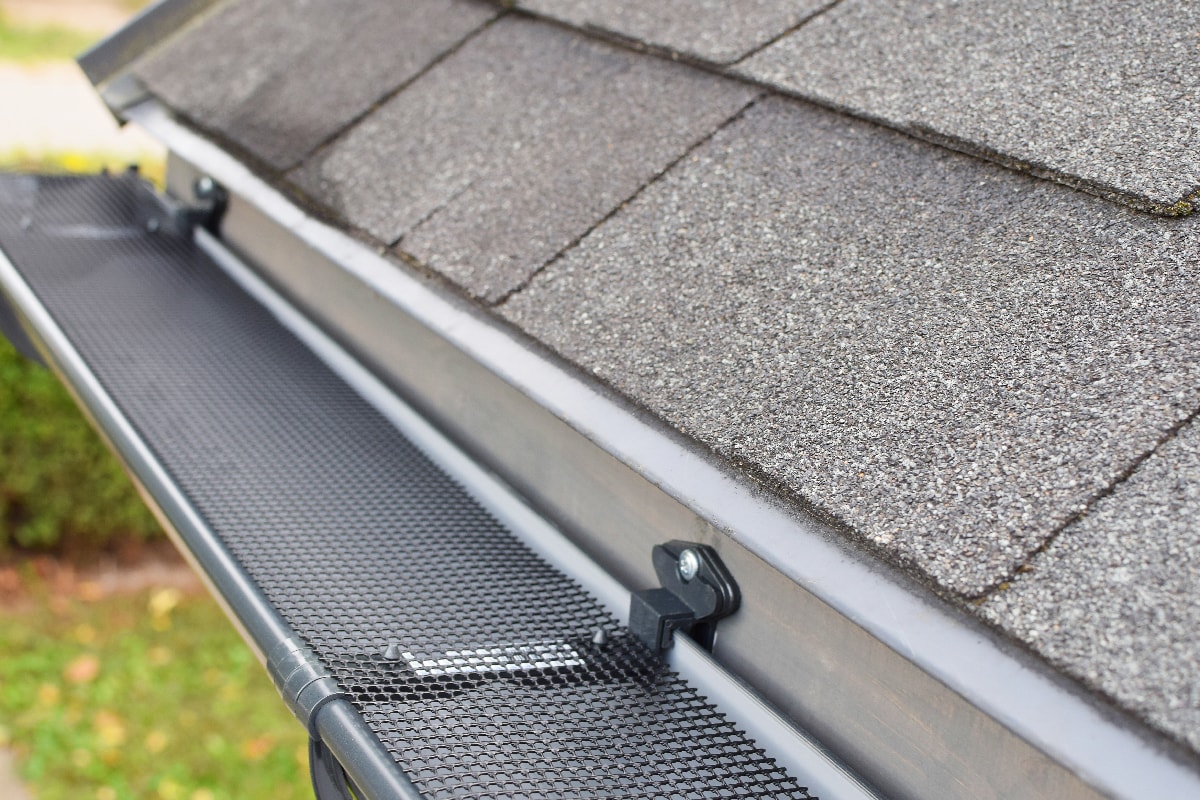
Your roof can accumulate a lot of leaves and other debris without a gutter system, causing water to stagnate and overflow. This might expose your house to rot, rust, and other damage.
Furthermore, gutters keep water from pooling around your basement. Water spills from your roof may seep into your foundation and gradually destroy everything that supports your building.
Different Types Of Gutter Materials
Let's look at the various gutter materials you can use in your building to choose the best option available when replacing your gutters.
Aluminum Gutters
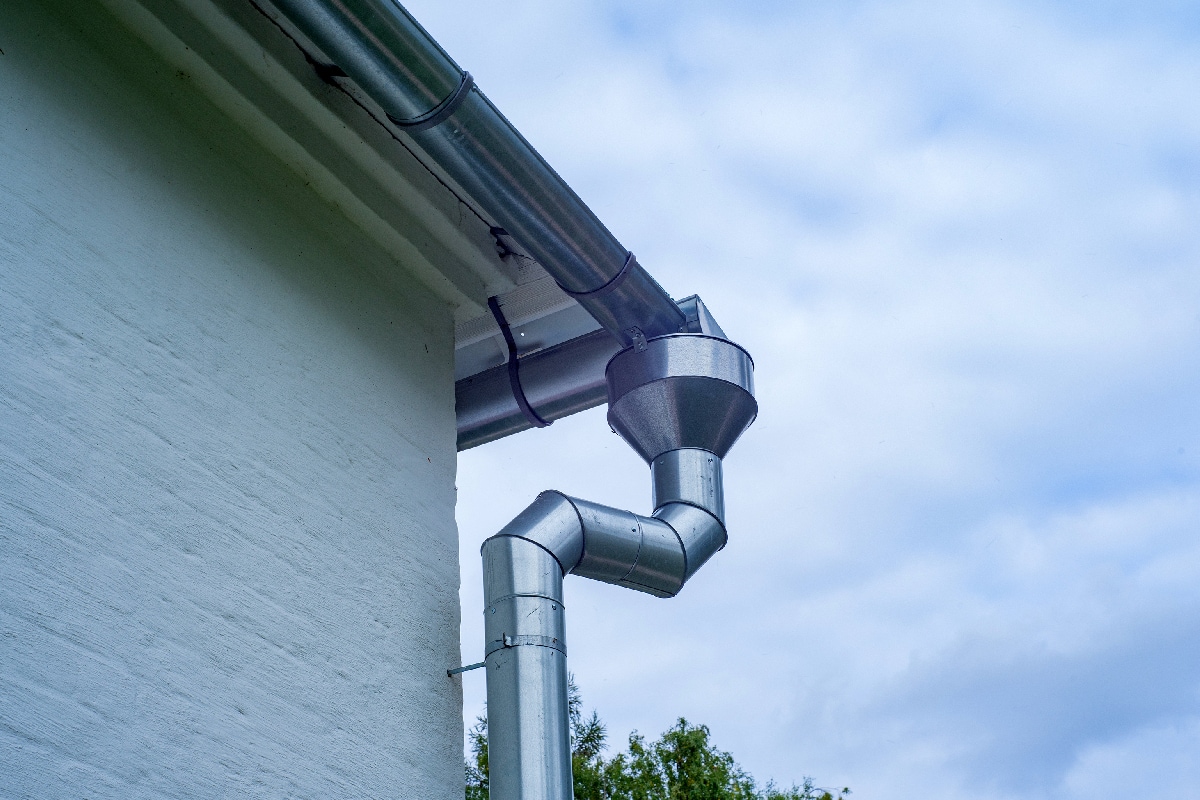
Aluminum gutters are the most common type of gutter. These gutters are lightweight, highly durable, rust-resistant, and simple to install. They come in a variety of hues and can last for many years.
Aluminum can withstand snow, sunlight, and mechanical shock with ease. It is long-lasting, yet loud and somewhat expensive. If the house does not have sufficient sound insulation, every drop of rain that falls into the same drainage system will be audible from within.
Vinyl Gutters
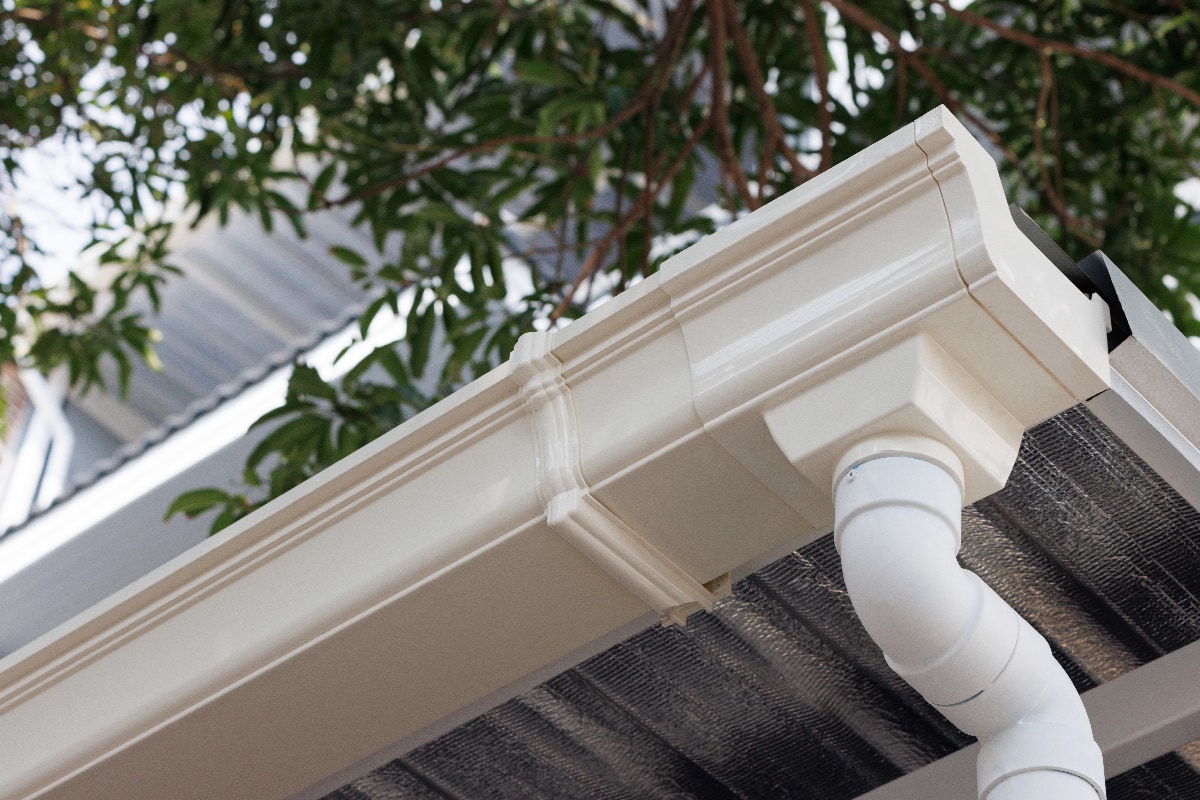
Vinyl gutters are less common, but they remain an affordable, lightweight, and low-maintenance choice that appeals to budget-conscious homeowners. Furthermore, they are available in various colors and designs, making them suitable for various settings.
However, they aren't as durable as other types. If you live in a region with frequent heavy rainfall, you might choose a more durable one. The material may also be easily broken by ice dams, making it unsuitable for places with heavy snowfall.
Steel Gutters
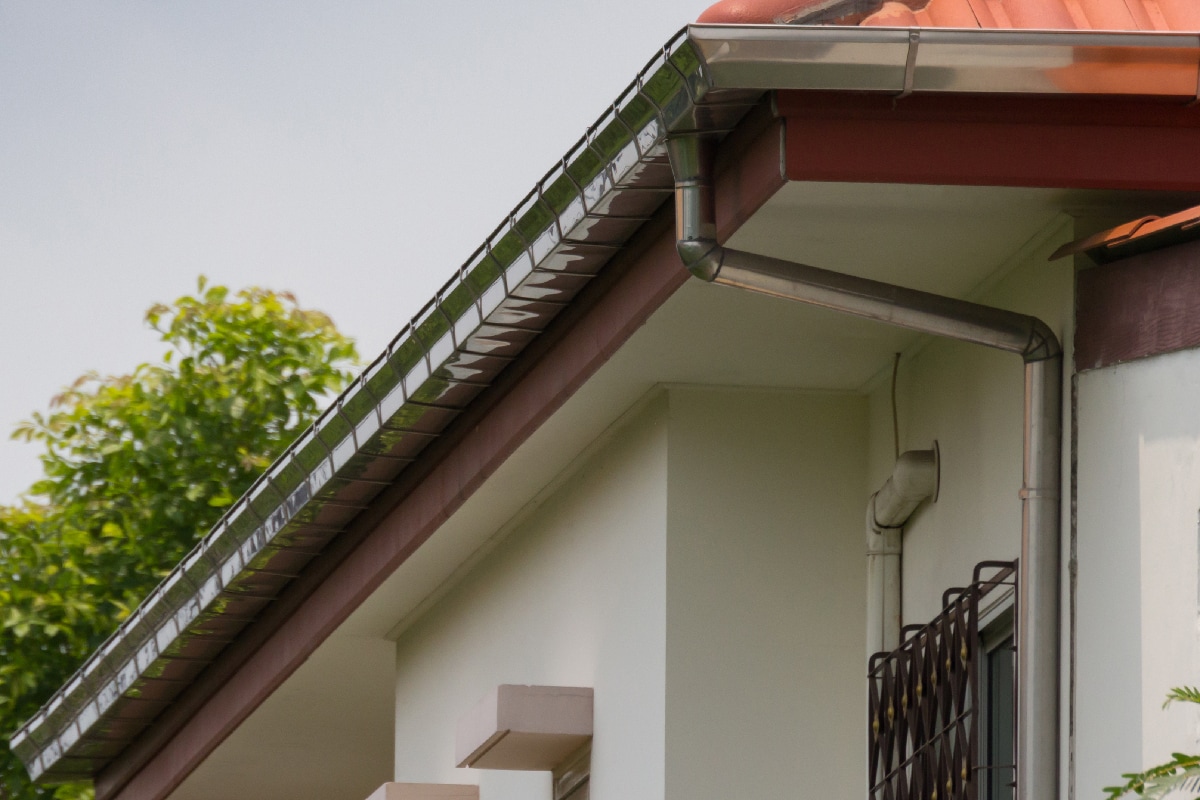
Steel gutters are ideal for homes with a lot of snow or ice since they are more corrosion-resistant.
Steel gutters are extremely durable and leakproof. They can withstand almost any weather conditions. Steel gutters' only drawbacks are they're expensive and weight, as they are the heaviest form of gutter.
PVC Gutters
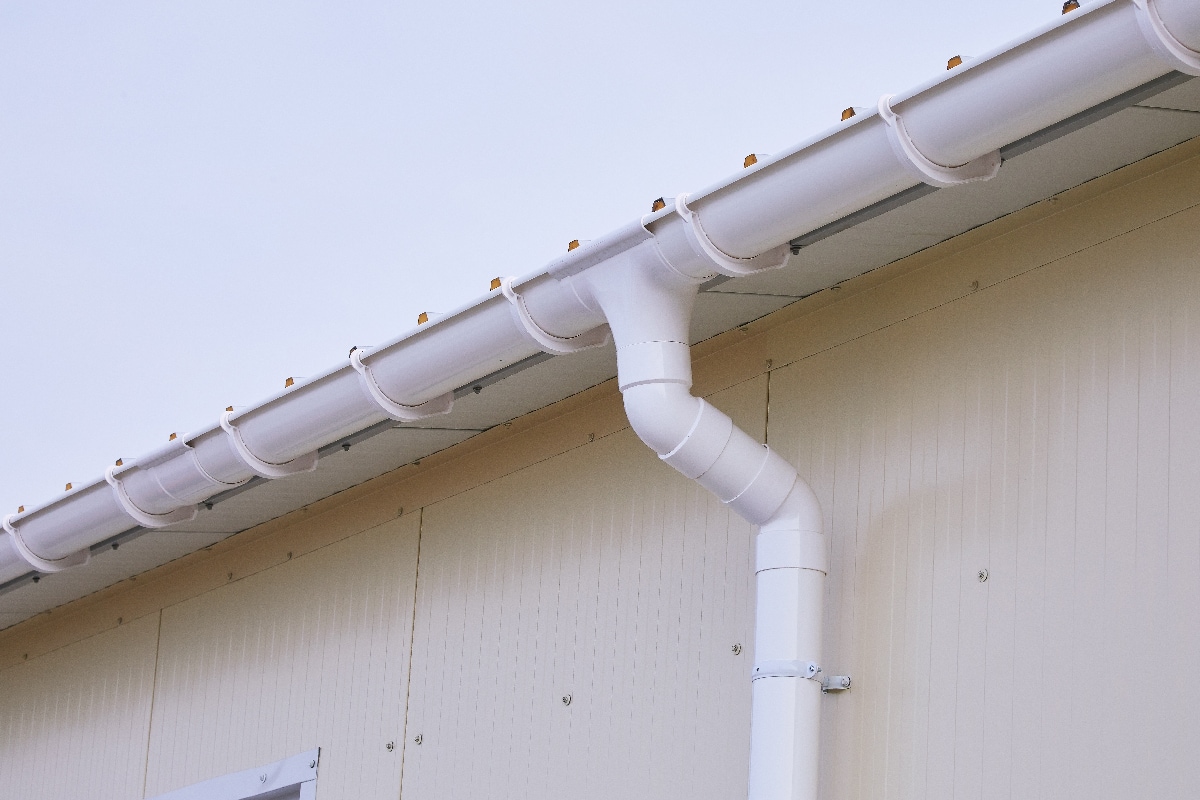
Plastic gutters are lightweight and simple to install, making them an excellent do-it-yourself task.
Aside from that, PVC gutters do not rust, flake, or decay, so you can be confident that they will endure longer. Its smooth surface, different shapes, and colors make it simple to complement the rest of your home's exterior. They also offer lower maintenance expenses because you don't have to repaint or replace them frequently.
What Are The Types Of Gutters?
Rain gutters come in a variety of styles. If you intend to install a gutter in your home, it's important to understand their differences to select the ideal one for your needs. Let's look at each of these styles and what they are best utilized for.
Half-Round Gutters
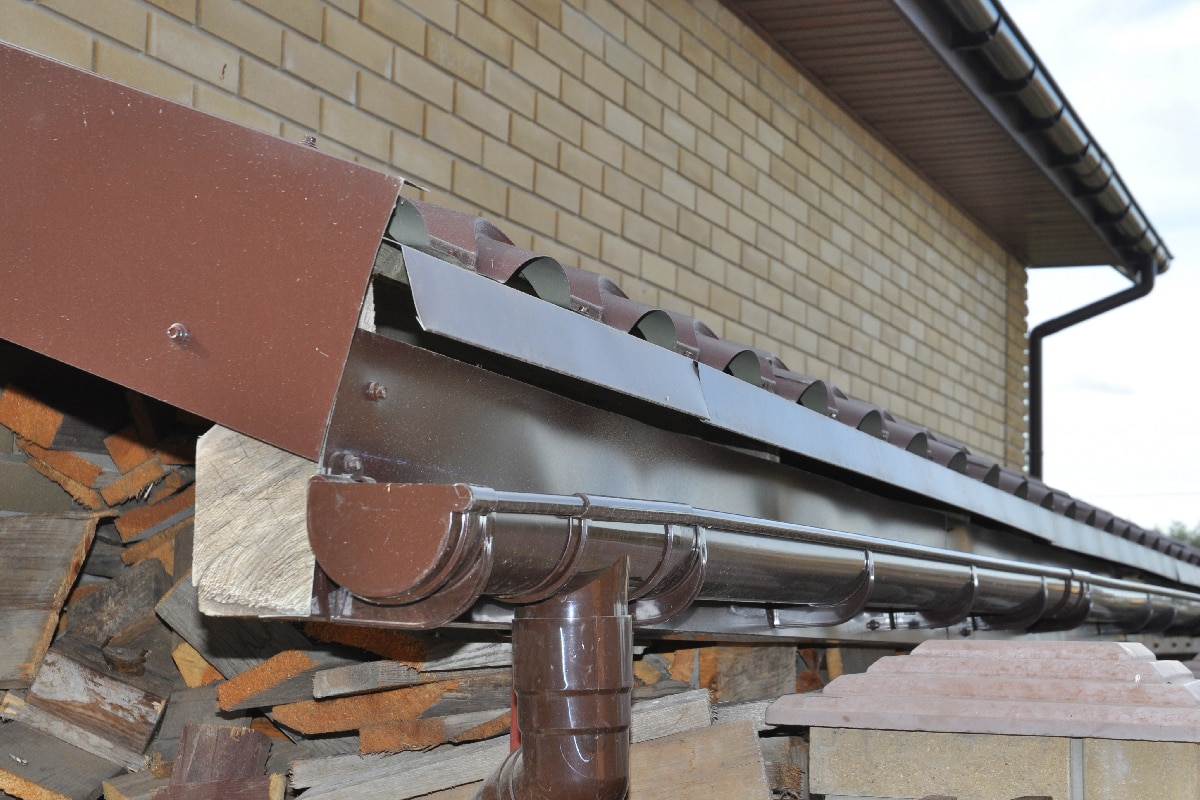
A half-round gutter is formed like a half-cut tube. Though it successfully channels water, its tiny entrance makes it susceptible to clogging by leaves and debris. However, this is readily addressed by placing leaf guards.
It's also important to understand that a half-round gutter has curved sides, which may necessitate the use of brackets to keep it in place.
Click to see Aluminum water guard on Amazon.
K-Style Gutters
When viewed from the side, these rain gutters are referred to as "K-style" because they resemble the letter K. They are simple to install and do not require any brackets. They also have a beautiful front side, which might mimic crown molding.
Furthermore, K-style rain gutters may channel more water than other styles of gutters. These gutters are more difficult to clean because their interior angles are more prone to blockage.
Fascia Gutters
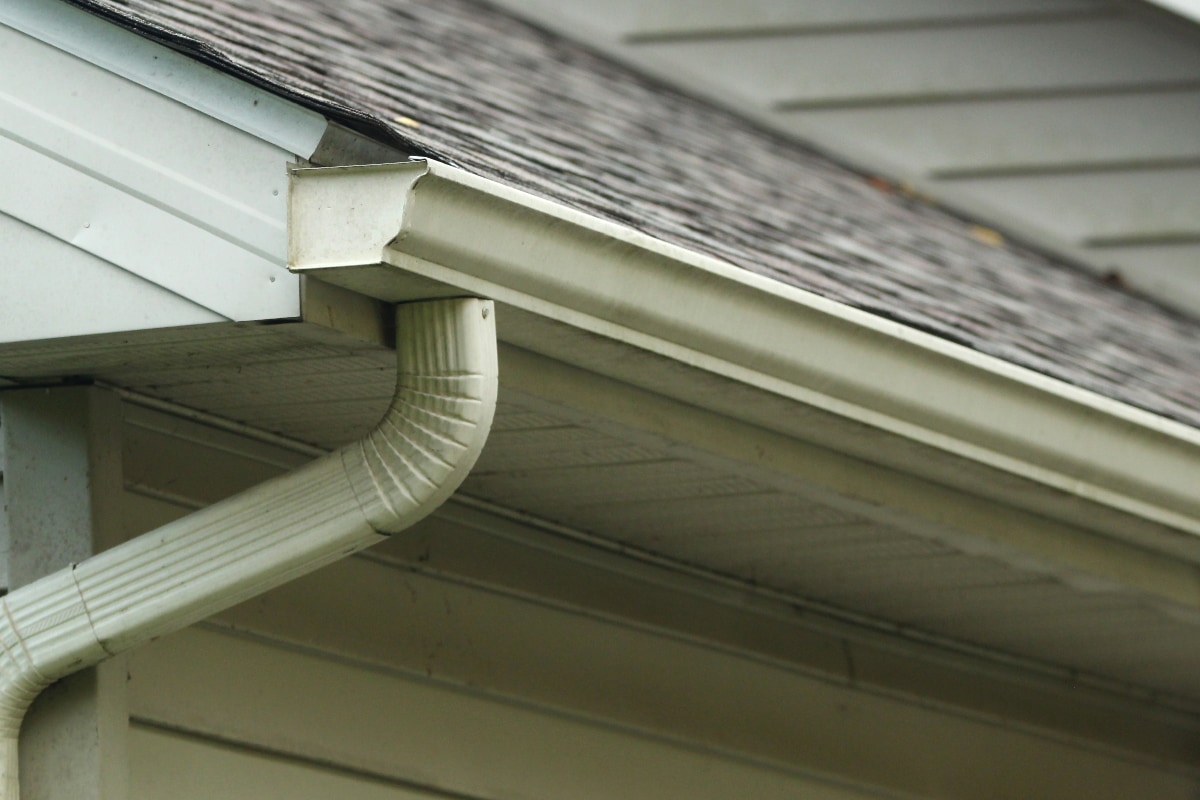
Custom-made fascia rain gutters are considered more modern. However, unlike half-round or K-style gutters, these types of gutters are not offered in parts that fit together. This implies that some fascia gutter seams are more susceptible to corrosion and leaks.
On the other hand, Fascia gutters are custom-made for specific structures and are often fashioned from a single long piece of metal. Though excessively sleek and stylish, fascia gutters are also more costly and must be installed appropriately.
Box-Style Gutters
Box-style gutters are common on commercial or industrial structures, although they may be customized for private residences by a professional. Box gutters are huge and built to withstand heavy rains.
Unlike other gutters, box-style is not attached to the edge of your roof. Instead, they employ a high rear piece that tucks behind the roof tiles. As a result, box gutters must be installed during the construction of your home.
Tips For Maintaining Your Gutter?
Gutter maintenance is one of the most disregarded household cleaning duties, mainly because few people realize how crucial it is to maintain your gutters clean, clear, and in good operating order.
Gutter failure or blockage can result in overflow, rat infestations, costly repairs, or, in the worst-case situation, structural damage to property. Keeping your gutters in good condition is critical, so we looked into gutter maintenance recommendations.
Regular Cleaning
Gutter inspections should be performed at least twice a year. It would be best if you did this before the rainy season to guarantee that no debris or dirt build-up is present in your gutter system. Small branches or leaves, especially if tree branches overhang your roof, may clog your gutter system, allowing rainwater to accumulate.
Clean it immediately if you notice debris, algae, or grime in your gutter system.
Clean Your Roof
Always be cautious when accessing such heights. Never go to the roof when it is icy, damp, or windy. If the weather is nice, roll the roof and clear leaves and other debris with a rake. This guarantees that the following heavy rainfall does not take them into the gutters and clog them.
Examine The System For Leaks, Rust, Holes, And Corroded Joints
Once your gutters have been cleaned, and the downspouts are clear, examine them for any signs of corrosion, leaks, or holes. They are commonly found at gutter joints, where the edges are welded together.
Gutter patching kits are available at your local hardware shop, and you should caulk and seal any weak or rusted seams. You may also see locations where the gutter structure has come loose from the roof or siding and has to be reattached.
If the gutters are severely damaged, rusted, or otherwise deteriorated, they should be replaced. Aluminum, PVC, steel, and vinyl gutters are a good investment since they don't corrode and endure longer than other materials.
Click to see Gorilla Waterproof Patch & Seal on Amazon.
Check Your Downspouts
The gutters collect the water and debris that falls from the roof, but the downspouts do the rest. Without them, all of that water would drain toward your home's foundation, damaging the structure.
As with the gutters, inspect the downspouts for corrosion, leaks, holes, or rusted joints. Repair any damaged downspouts and replace those that are beyond repair. Use downspout extenders to offer proper drainage if your runoff pool is too close to your foundation or walkways.
Conclusion
When it comes to gutter materials, knowing what factors to consider will help you make a wise choice. Everything comes down to where you live, your budget, and, most significantly, the characteristics of the gutter materials that will best suit your property.
Made it to the end? Check out our other related helpful article below!


